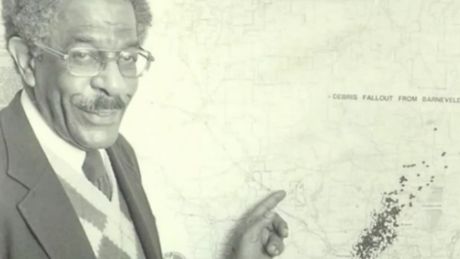Charles E. Anderson paved the way for diversity in atmospheric sciences, starting with being a weather officer for the Tuskegee Airmen.
One of Anderson's most notable and recognized accomplishments in his lifetime was being the first African American to earn a PhD in meteorology.
This was no easy feat, and in doing so, opened a door for a more inclusive and diverse world of meteorology.
His background to getting his PhD in meteorology is quite interesting.
In 1941, Anderson earned his Bachelor of Science degree in Chemistry from Lincoln University.
Shortly after, he joined the U.S. Army Air Corps where he was sent to study meteorology at the University of Chicago. It was there where he earned his master's degree in meteorology in 1943.
While serving in the U.S. Army Air Corps, Anderson was stationed as a weather officer in Tuskegee, Ala. Some of you may know of the Tuskegee Airmen that Anderson was a part of.
He spent some time after as a squadron weather officer, training other fighter pilots.
Listen to him share his experiences in the Air Corps:
In 1960, Anderson received his PhD in meteorology at the Massachusetts Institute of Technology.
After receiving his PhD, Anderson served as the Director of the Office of Federal Coordination in Meteorology in Environmental Science Administration of the U.S. Department of Commerce.
Finally in 1966, Anderson was hired as a Professor of Meteorology at the University of Wisconsin. Although he started in this position, Anderson wore many hats during his time in Madison.
From becoming the Professor of Afro-American Studies and Chairman of the Meteorology Department to being promoted to Associative Dean in 1978, he spent over two decades teaching young Wisconsinites the importance, science, and mechanics of meteorology.
Anderson finished his career at North Carolina State University as a professor in the Department of Marine, Earth and Atmospheric Sciences, retiring in 1990.
Our team of meteorologists dives deep into the science of weather and breaks down timely weather data and information. To view more weather and climate stories, check out our weather blogs section.





